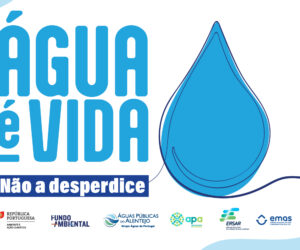Scheduled next Sunday, day 17 November, “World Day of Remembrance for Road Victims”, with the aim of remembering all the victims of road accidents, which according to the World Health Organization (OMS) surround the 1,2 millions of deaths and 50 millions injured, per annum, all around the world.
Colonel of the GNR
Master in Law and Security and Homeland Security Auditor
Portugal is not immune to this tragedy, quite the opposite, where in recent years, there has been an increase in the number of accidents and deaths on the roads, Therefore, it is necessary to have institutions that provide assistance to victims, at first occurrence, and so we could not miss this opportunity, to pay our tribute to all Fire Departments and the National Institute of Medical Emergency (INEM), who, together with the Security Forces, are the first to arrive at accident sites, often life-threatening, with the sole objective of providing assistance and saving lives, This article is about the assistance provided to victims of road accidents.
According to studies, next to 50% of deaths caused by road accidents occur at the scene of the accident or on the way to the hospital, among patients who are taken to the hospital, 15% of deaths occur in the first 4 hours after the accident and 35% occur after these 4 hours, concluding that reducing the time between the accident and the arrival of emergency medical services, of 25 to 15 minutes, can reduce the number of deaths by a third and that the systematic training of emergency and rescue teams can reduce between 40% a 50% the length of incarceration of a victim trapped in a vehicle.
Therefore, shortening the time between the accident and the victim receiving definitive treatment is crucial in reducing mortality and permanent sequelae., this time must be less than one hour, concept of traumatology, known as “golden hour”, thus increasing the quality of assistance to accident victims through the speed of assistance.
So, rapid and effective assistance to victims of road accidents and the presence of trained rescuers with the appropriate skills, is crucial to saving lives, because immediate care can prevent the consequences of the accident from worsening, allowing initial procedures to be carried out, such as hemorrhage control and fracture stabilization, that prevent serious complications before arrival at the hospital, providing quick help, to reduce the suffering and anxiety of victims, also improving the effectiveness of subsequent treatments.
Besides, First responder readiness helps prevent additional risks, as accidents on busier roads can lead to new accidents, exposing victims and road users to danger, with the emotional and psychological support offered by rescue professionals being equally relevant, as it helps the victim feel security and confidence in the care.
Emotional and psychological support is another vital component in caring for victims of road accidents, as it helps to mitigate the profound consequences that these events can leave both physically and psychologically, taking into account that road accidents are traumatic and often violent events, which can have a severe and lasting emotional impact on victims, affecting their ability to recover and reintegrate into everyday life, whose consequences a road accident victim may face, go beyond the physical consequences.
In addition to the physical consequences, victims of road accidents, may also present psychological and emotional consequences, which includes post-traumatic stress disorder (expected), caused by the traumatic experience of the accident, leading to nightmares and intense anxiety, to depression, triggering loss of functional capacity, lifestyle changes and feelings of worthlessness, to anxiety and phobias, namely the fear of driving or even leaving the house, limiting patient autonomy and socialization, to insomnia and sleep disorders, caused by trauma and psychological stress, affecting health and recovery and feelings of guilt or shame, especially in accidents involving other people or where the victim believes they are responsible.
No less important are the social and financial consequences, namely due to the loss of employment or the reduction of work capacity, which can result in economic difficulties and impact psychological well-being, leading to social isolation caused by physical limitations or anxiety, making family and social life difficult, with changes in family dynamics, as the victim may need care, also affecting the mental health of family members and caregivers.
Therefore, in addition to providing immediate assistance to victims of road accidents,, emotional and psychological support is essential to help victims process the trauma and deal with the physical and emotional changes that follow the accident.
So, so that emergency teams provide efficient care and save lives in road accidents, It is essential that they have sufficient and adequate means and resources, which firstly includes emergency and transport vehicles, namely Basic and Advanced Support ambulances, equipped with medical and life support equipment, like automatic external defibrillators (DEA), oxygenation kits and ventilators, cardiac monitoring equipment, cervical immobilizers and trauma kits, etc.
Also important is the existence of specialized rescue vehicles, as extrication and rapid intervention vehicles to reach victims in difficult to access locations, and emergency helicopters, for rapid transport of victims in serious cases or in areas with difficult land access, equipped with rescue and extrication tools.
No less important are lighting and signaling equipment, necessary not only for lighting the accident site, in case of reduced visibility, particularly in accidents at night or in adverse weather conditions, as well as to signal rescuers, warning cones must be used, emergency tapes and flags, to control traffic and secure the accident scene, ensuring the safety of victims and rescue personnel and to alert nearby drivers and prevent further accidents.
All these features allow rescue teams to act quickly, safe and effective, increasing victims' chances of survival and reducing the risk of complications, because well-structured assistance supported with appropriate equipment not only guarantees the stabilization and adequate transport of victims, but also protects the rescuers themselves, contributing to a more complete and efficient emergency response.
In conclusion, Immediate and adequate assistance to victims of road accidents is essential to save lives, minimize sequelae and ensure that first care has the maximum positive impact, the importance of this service highlights the need for a well-equipped emergency infrastructure and an efficient rapid response system, resulting in a reduction in the number of victims as a result of road accidents.
Note: The text constitutes the exclusive and unique opinion of its author, which only binds to this and do not reflect the opinion or position of the institution where it provides services

























